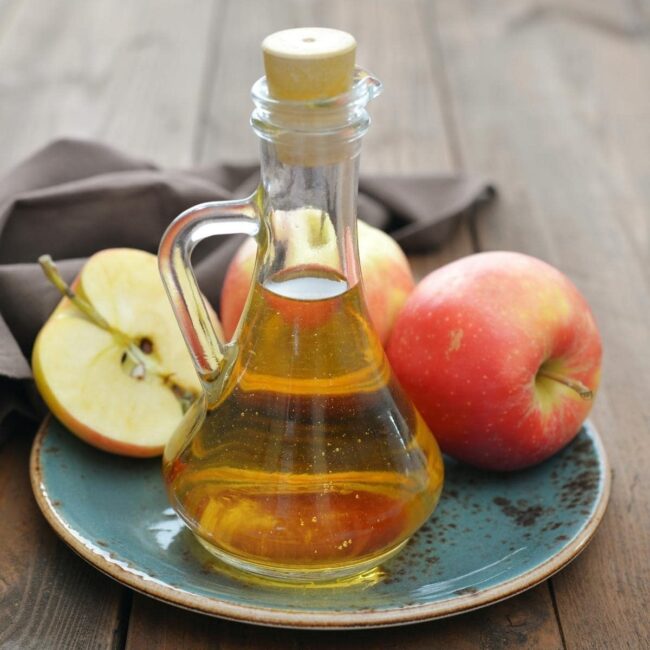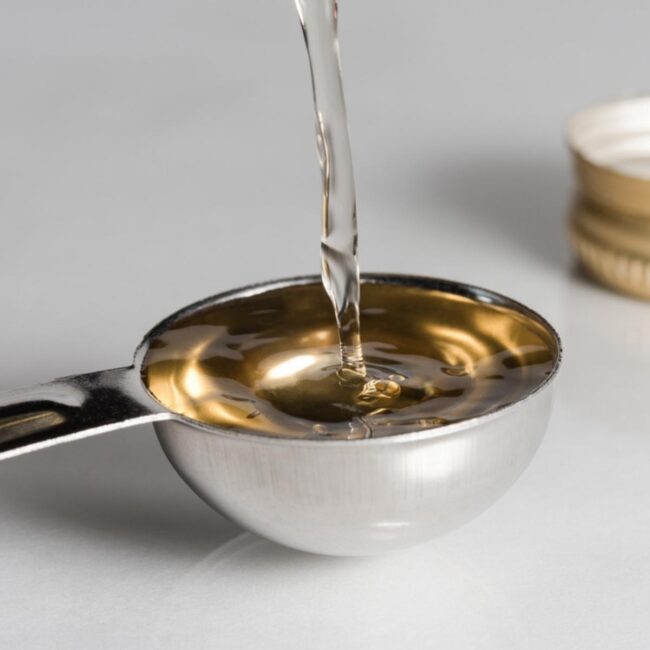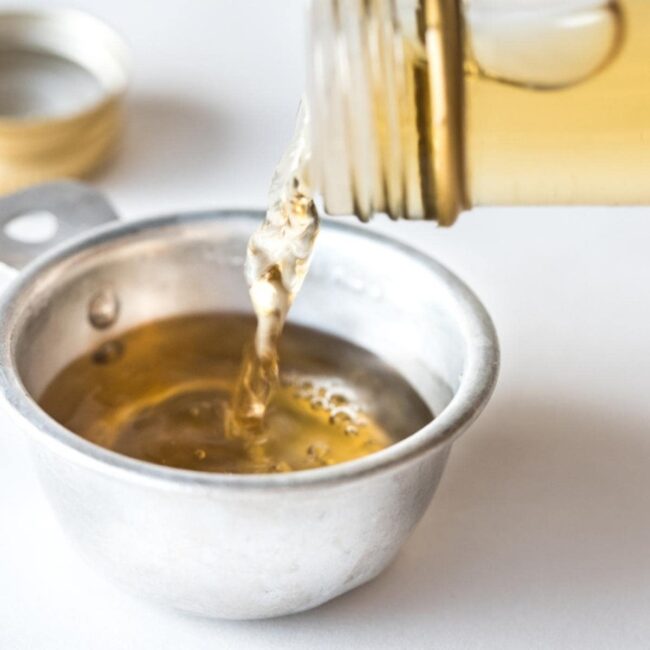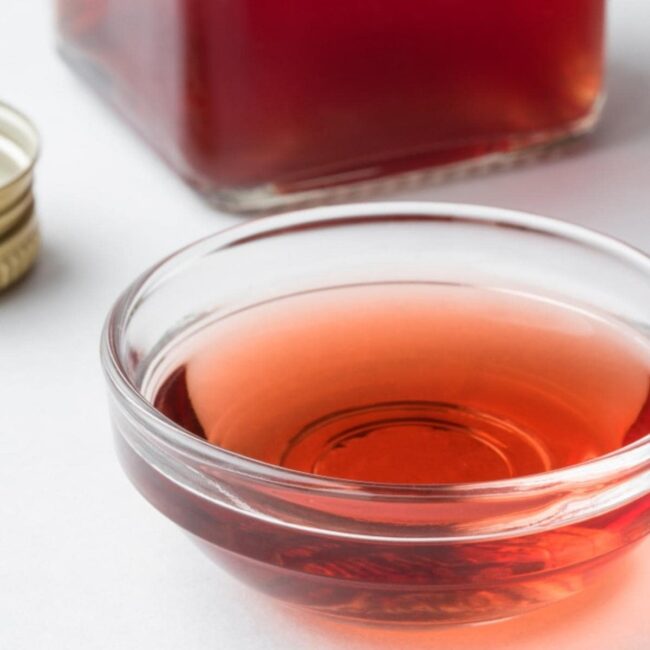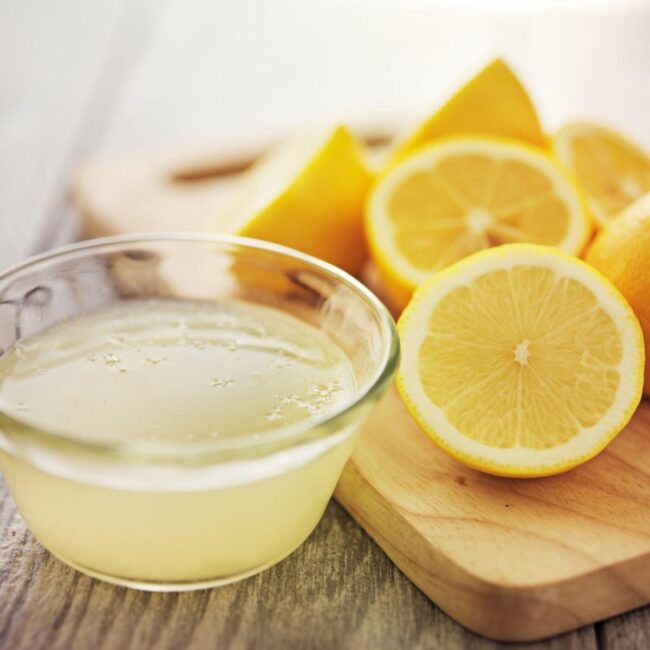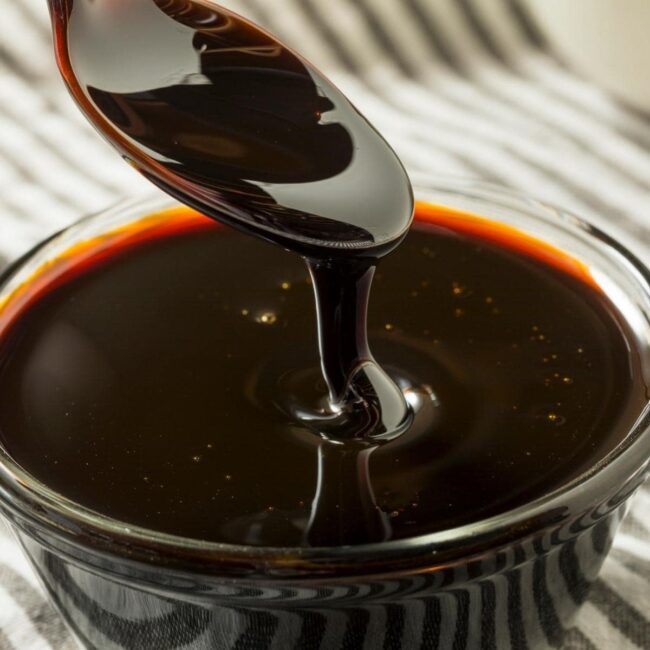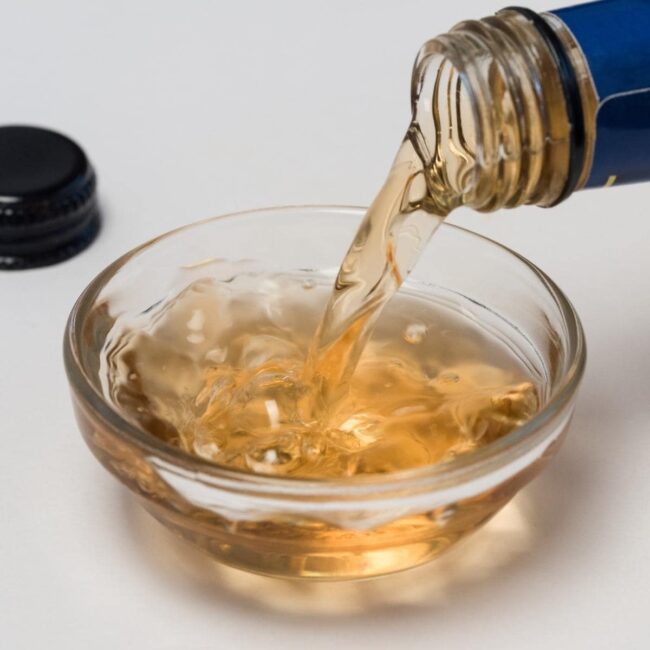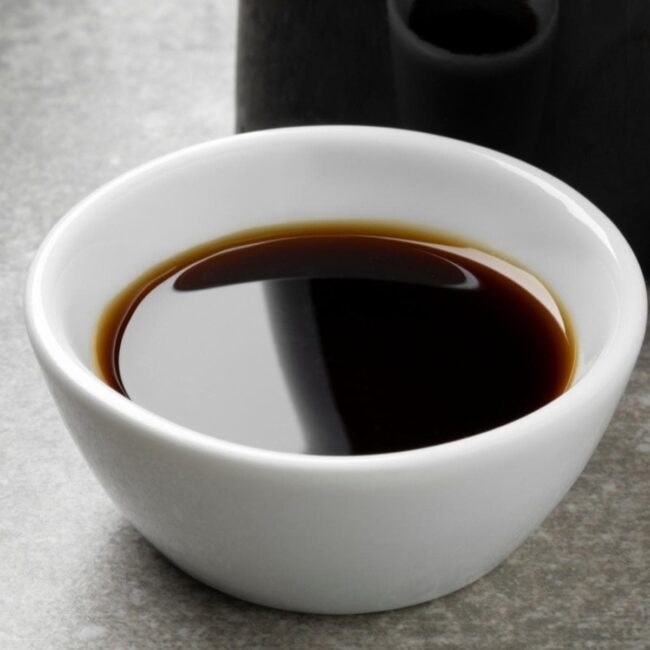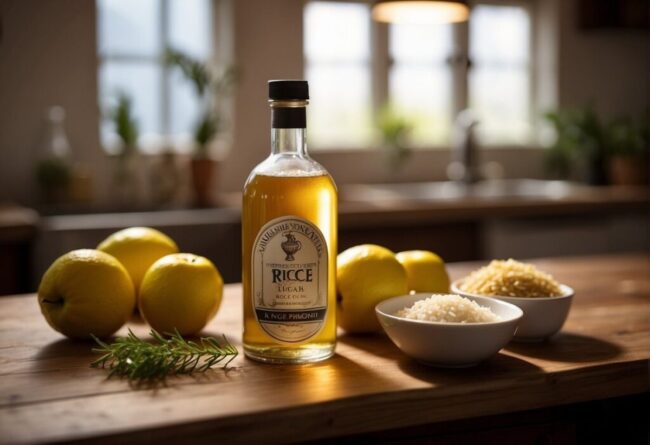9 Rice Vinegar Substitutes for Asian Cuisine and Dressings
Rice vinegar substitutes bring the right balance of mild acidity and subtle sweetness to recipes. Some alternatives offer a clean, neutral taste, while others introduce a hint of fruitiness or depth.
The best choice depends on whether the dish needs a delicate, slightly tangy element or a more pronounced acidic note. A few options work well in marinades and stir-fries, while others enhance dressings and sushi rice.
Certain substitutes provide a smooth, well-rounded acidity that blends seamlessly into recipes. Try these 9 rice vinegar alternatives to achieve the perfect flavor balance:
A Guide to Understanding Rice Vinegar
Discover the flavor and common culinary uses of rice vinegar.
Where It Comes From and How It’s Made
Rice vinegar is a staple in Asian cuisine, crafted through the fermentation of rice. This unique process transforms sugars into alcohol, which then evolves into acetic acid, contributing to its tangy flavor profile.
Variations in production methods lead to distinct taste nuances and acidity levels that can enhance various dishes. You might find it elevating sushi or dressing salads with its sharpness while adding depth to marinades and sauces as well.
Understanding how different types of rice vinegar interact with ingredients allows for creative culinary applications you may not have considered before.
How It’s Used in Recipes
Rice vinegar is a staple in numerous Asian cuisines, renowned for its ability to elevate dishes with a touch of acidity. This versatile ingredient plays an essential role in achieving the perfect texture and flavor profile in sushi rice, ensuring it holds together beautifully while enhancing taste.
Beyond sushi, rice vinegar enhances dressings and marinades with its balanced tanginess that harmonizes rather than overwhelms other ingredients. It’s also frequently employed in pickling solutions, adding complexity without masking the natural essence of vegetables or proteins.
Incorporating this vital element into your cooking can transform ordinary meals into something special by enriching flavors seamlessly throughout your culinary creations.
Health Benefits and Nutritional Value
Rice vinegar stands out as a versatile ingredient celebrated for its distinct tangy flavor. Often used in Asian cuisine, it adds depth to dressings, marinades, and sauces while enhancing the overall taste of dishes.
With low calories and trace nutrients like sodium and potassium, its appeal lies primarily in its ability to balance sweetness and acidity without overpowering other ingredients. When incorporated into your meals, you’ll appreciate how it elevates everything from sushi rice to pickled vegetables.
This pantry staple not only enhances flavors but also brings an authentic touch that transforms ordinary recipes into something special.
What It Tastes Like
Rice vinegar is a versatile condiment known for its subtle sweetness and gentle acidity, setting it apart from harsher vinegars. This mild flavor makes it an excellent addition to dressings, marinades, and dipping sauces where you seek balance without overpowering the dish.
Depending on the brand or type you choose, the taste can shift slightly in terms of sweetness or tanginess. You’ll find that rice vinegar enhances flavors while maintaining a light touch in your culinary creations.
It’s an essential ingredient if you're looking to elevate your cooking with nuanced sour notes that complement rather than overwhelm other ingredients.
Different Types of Seasoned Rice Vinegar
Seasoned rice vinegar is an essential ingredient that enhances the flavor profile of sushi rice and similar dishes, thanks to its blend of sugar and salt. This unique combination creates a subtly sweet tang that elevates any meal it graces.
When incorporating seasoned rice vinegar into your recipes, adjusting additional sugar and salt can help maintain the ideal taste balance you seek. I often find that using this versatile vinegar not only complements but also transforms simple ingredients into something truly special.
It's a must-have for anyone looking to add depth to their cooking repertoire.
How to Pick the Right Rice Vinegar Substitute
Need a rice vinegar replacement? These swaps keep the right balance of acidity and sweetness.
Apple Cider Vinegar
Apple cider vinegar is a fantastic alternative to rice vinegar, boasting a comparable sweet and tangy flavor profile. When you substitute it in your recipes, maintaining the same measurement works well for most applications.
Its gentle apple undertones can enhance dishes without overpowering other ingredients, allowing you to explore new dimensions of taste. This ingredient seamlessly fits into dressings or marinades while also complementing stir-fries beautifully.
As I incorporate it into my cooking, I've found that its versatility makes it an essential pantry staple worth having on hand.
White Wine Vinegar
White wine vinegar serves as an excellent alternative to rice vinegar, offering a comparable acidity level with a more complex taste profile. Its subtle notes can enhance your dishes while maintaining the intended flavor balance.
When swapping it in recipes, you might want to use just a touch less than called for and consider diluting it slightly with water if needed. This simple adjustment ensures that your culinary creations remain vibrant without overpowering other ingredients.
Perfect for dressings or marinades, white wine vinegar adds depth and sophistication effortlessly.
Champagne Vinegar
Champagne vinegar is a versatile ingredient derived from Chardonnay or Pinot Noir grapes, celebrated for its gentle and nuanced flavor profile. This vinegar effortlessly enhances dressings, sauces, and marinades without overpowering other ingredients.
When you’re looking to replace rice vinegar in your culinary creations, champagne vinegar serves as an excellent alternative that maintains balance in taste. Its unique acidity can brighten dishes while offering a sophisticated touch that's ideal for gourmet cooking.
You’ll find this substitute particularly effective when used at an equal ratio to achieve the desired tartness without sacrificing depth of flavor.
White Vinegar
White vinegar stands out as a robust alternative to rice vinegar, characterized by its intense acidity and bold flavor. Its pronounced tang can enhance various dishes but might overpower delicate recipes.
Reducing the amount used is advisable; starting with less than specified ensures better balance in your meal. To soften its sharpness, adding a small pinch of sugar brings harmony to the dish without overshadowing other ingredients.
This substitute effectively works well for dressings or marinades where you want that extra kick while maintaining overall flavor integrity.
Red Wine Vinegar
Red wine vinegar stands out as a versatile alternative to rice vinegar, bringing depth and character to your dishes. Its rich taste complements heartier recipes like marinades or dressings, enhancing the overall flavor profile.
Adjusting its intensity is simple; just use it in moderation and consider adding a hint of sweetness if necessary. Whether you’re crafting a zesty vinaigrette or braising meats, this substitute can add an exciting twist that elevates your culinary creations.
You’ll find that red wine vinegar offers both complexity and richness for those seeking bold flavors in their cooking.
Lemon or Lime Juice
Lemon or lime juice serves as an excellent alternative to rice vinegar, offering a zesty acidity that brightens up your dishes. These citrus juices add a refreshing twist while maintaining the necessary tanginess for dressings and marinades.
When substituting, using less than you would with vinegar is key to avoiding overpowering flavors. Just keep in mind that the unique profile of your dish might change slightly with this substitution, allowing for new taste experiences in familiar recipes.
You’ll find lemon or lime juice particularly effective in salads and seafood preparations where brightness shines through beautifully.
Malt Vinegar
Malt vinegar serves as an alternative to rice vinegar, offering a bold tanginess that sets it apart. Unlike the subtle sweetness of rice vinegar, malt delivers a robust flavor profile ideal for recipes that can benefit from its intensity.
You might find it particularly effective in marinades or dressings where you want to add depth. Using malt vinegar introduces a unique character to dishes while enhancing their overall taste experience.
Its distinctiveness shines best when not overshadowed by other strong flavors, allowing you and I to enjoy its full potential without compromise.
Sherry Vinegar
Sherry vinegar brings a rich, nutty essence to your dishes thanks to its base of sherry wine.
Its intricate flavor profile adds depth and complexity, making it an excellent option for dressings or marinades where you want that extra layer of taste.
Begin with small amounts to gauge how well it harmonizes with other components in your recipe.
As you incorporate this versatile ingredient, you'll discover new dimensions in familiar meals that invite exploration and creativity at the table.
Balsamic Vinegar
Balsamic vinegar serves as a versatile alternative to rice vinegar, known for its robust sweetness and deep flavor profile. This rich condiment brings an earthy complexity that can transform dressings or marinades with just a hint.
Its darker hue might change the visual appeal of lighter dishes, so moderation is key when incorporating it into your recipes. Opting for this substitute allows you to experiment with flavors while still achieving balance in your culinary creations.
Adjusting the quantity will help maintain harmony without overpowering other ingredients in your dish.
Using Orange Juice Alternatives in Cooking
Find out how to swap orange juice without changing the flavor too much.
Adjusting Acidity and Sweetness in Recipes
Apple cider vinegar or white wine vinegar serves as an excellent substitute for rice vinegar, offering a gentle acidity and slight sweetness that can enhance your dishes. By adding a pinch of sugar to the mix, you effectively replicate the nuanced flavor profile of rice vinegar.
A common ratio involves combining one tablespoon of either type of vinegar with half a teaspoon of sugar, creating an ideal balance for various recipes. This simple swap allows you to maintain authentic taste while using pantry staples, making it convenient and practical for everyday cooking needs.
Perfecting this blend opens up new possibilities in your culinary creations without compromising flavor integrity.
Things to Keep in Mind When Cooking
Champagne vinegar serves as a fantastic substitute for traditional vinegars when cooking. Its gentle flavor profile maintains the necessary acidity without overwhelming other ingredients in your dish.
You can use it generously to ensure that your recipes retain their zesty character, even under heat. The subtle notes of champagne vinegar enhance sauces and dressings beautifully while providing a refined touch to various meals.
Elevating your culinary creations is simple with this versatile ingredient at hand; just incorporate it where you need that extra kick of brightness.
Tips for Making Dressings and Sauces
Citrus dressings and sauces bring a bright, zesty punch to your dishes. Lemon or lime juice serves as an excellent alternative to rice vinegar, infusing meals with refreshing acidity.
Using these juices in moderation helps maintain the right balance; you can adjust their intensity by incorporating a hint of sugar or honey. This little addition smooths out the tanginess while mimicking the subtle flavor profile of rice vinegar beautifully.
It's an easy way to enhance your culinary creations without missing out on that signature zing.
Best Uses for Sushi and Marinades
Sushi and marinades benefit greatly from the unique tang of rice vinegar, which enhances their overall flavor. When rice vinegar isn't available, a simple yet effective alternative involves mixing white wine vinegar with sugar to achieve that sought-after taste profile.
Begin by using equal parts of both vinegars and then fine-tune the sweetness based on your preference. This versatile substitution allows you to recreate authentic flavors without compromising quality in your dishes.
Whether you're crafting sushi rolls or zesty dressings, this blend ensures delicious results every time.
How to Balance Flavors in Pickles and Slaws
Apple cider vinegar serves as a fantastic alternative for creating pickles and slaws that need a gentle tang. This ingredient brings its own unique sweetness, enhancing the overall flavor profile of your dish.
Tasting throughout the process allows you to find just the right balance, so adjusting sugars becomes an easy task if necessary. Whether you're crafting crisp salads or zesty condiments, this versatile vinegar elevates your creations seamlessly while maintaining their freshness.
Experimenting with apple cider vinegar can lead to delightful variations in traditional recipes without compromising taste.
Choosing the Right Substitute for Baking
Rice wine vinegar serves as a versatile ingredient in baking, known for its subtle taste and beneficial chemical properties. When you need an alternative, distilled white vinegar comes into play due to its widespread availability.
Its more robust flavor means you'll want to adjust the quantity used; smaller amounts will suffice while still delivering desired results. For recipes that call for sweetness alongside acidity, adding extra sugar can achieve that perfect balance without compromising texture or taste.
This approach opens doors to experimenting with various flavors in your baked goods.
Best Swaps for Special Diets
Rice vinegar alternatives like distilled white vinegar or citrus juices cater well to special dietary needs, offering versatile options for those avoiding alcohol or specific allergens.
Both substitutes maintain the acidity necessary for many dishes while enhancing flavors without overwhelming them.
It's essential to verify that your selection aligns with individual dietary requirements, ensuring a safe and enjoyable culinary experience.
These alternatives can seamlessly fit into dressings, marinades, and dips without compromising taste or quality.
Where to Buy the Best Vinegar Substitutes
Find out where to source quality alternatives to rice vinegar.
Common Pantry Substitutes
Your pantry likely holds several substitutes for rice vinegar that can enhance your dishes.
Where to Find Specialty Alternatives
For those seeking genuine Asian flavors, a few substitutes can enhance your culinary creations.
Making Homemade Substitutes
When you seek a natural alternative without preservatives, consider these homemade vinegar options.
These simple recipes bring freshness to your kitchen while avoiding unnecessary additives.

